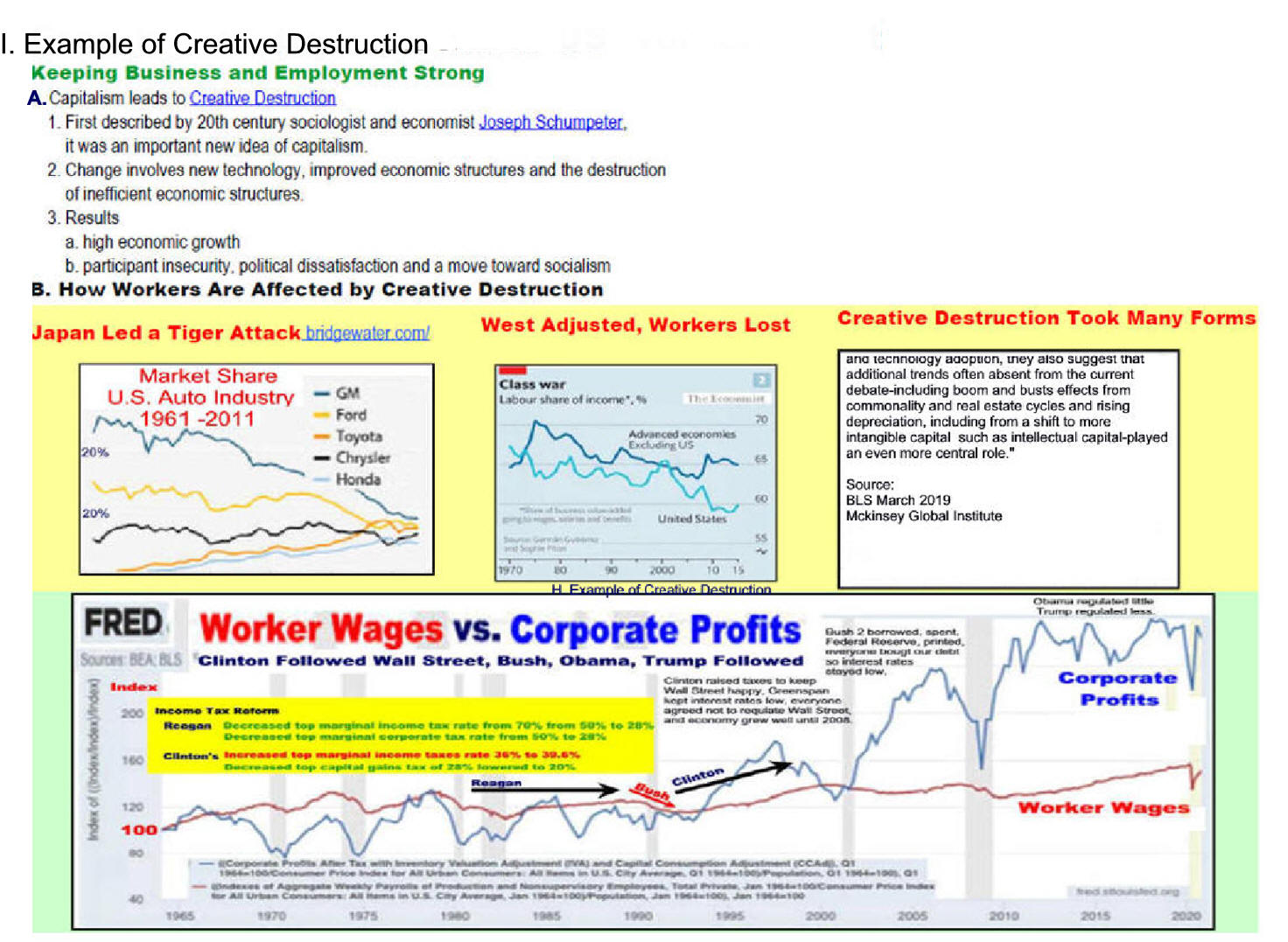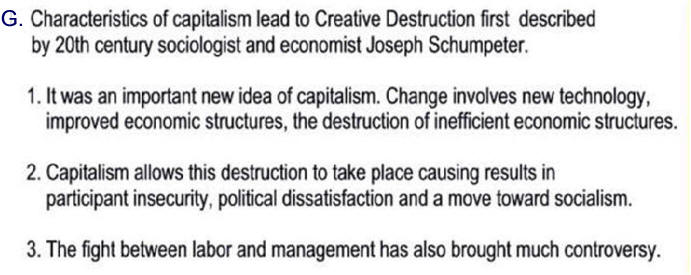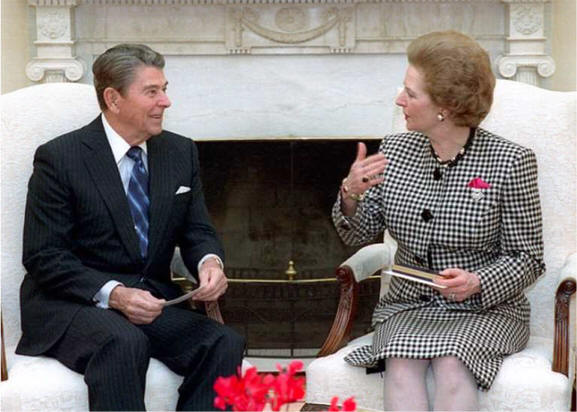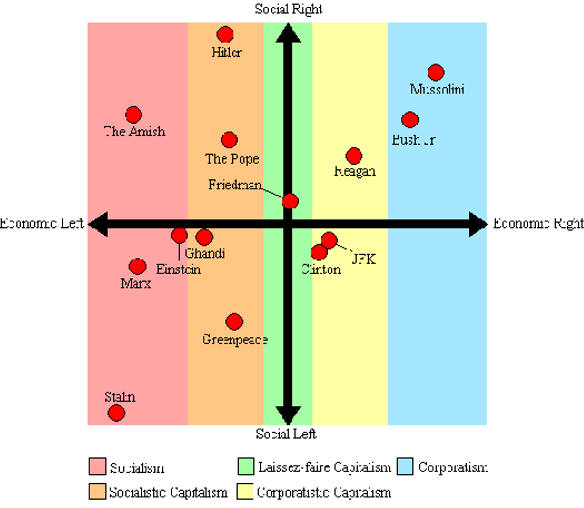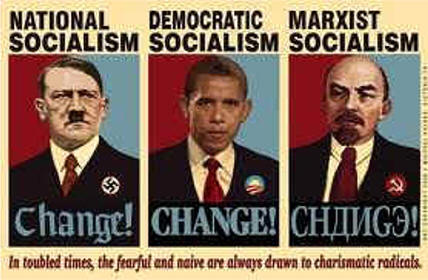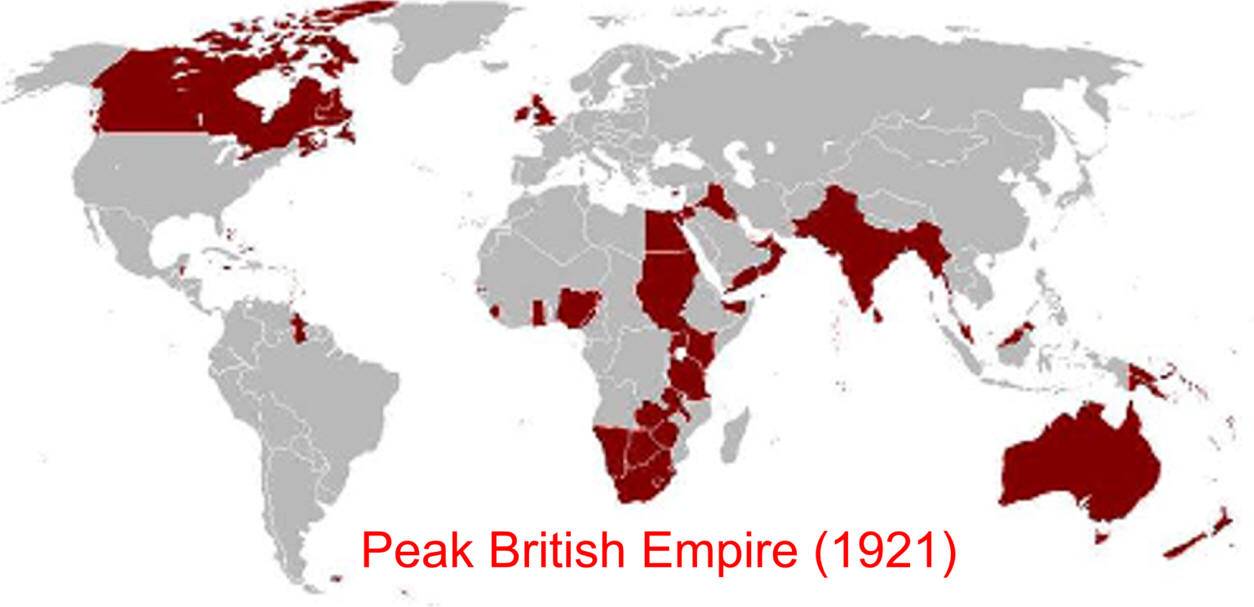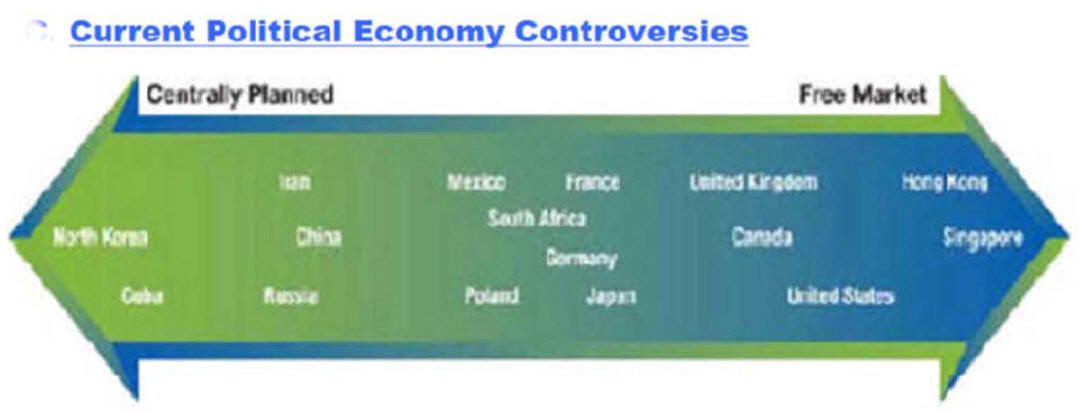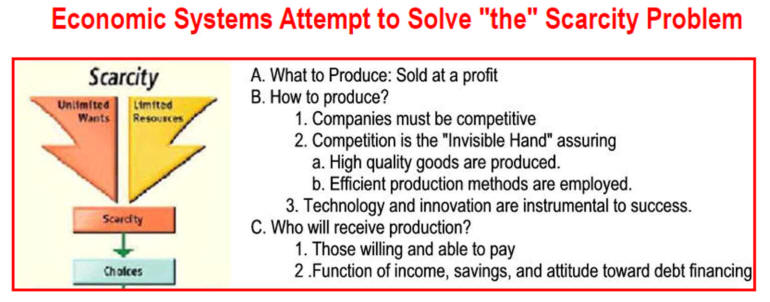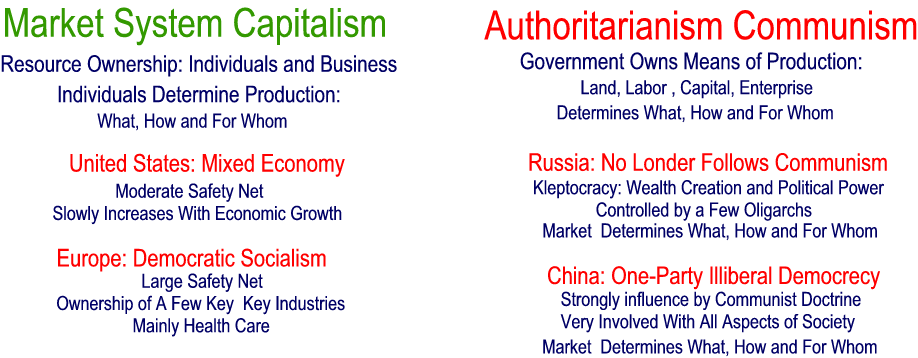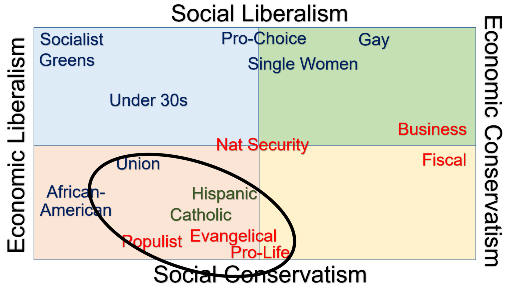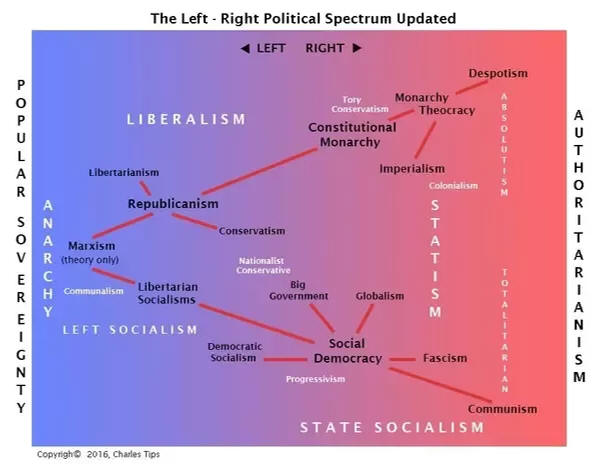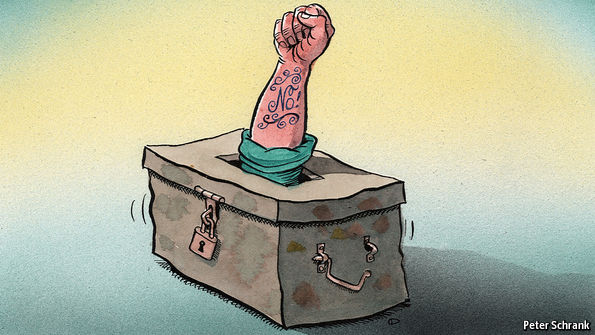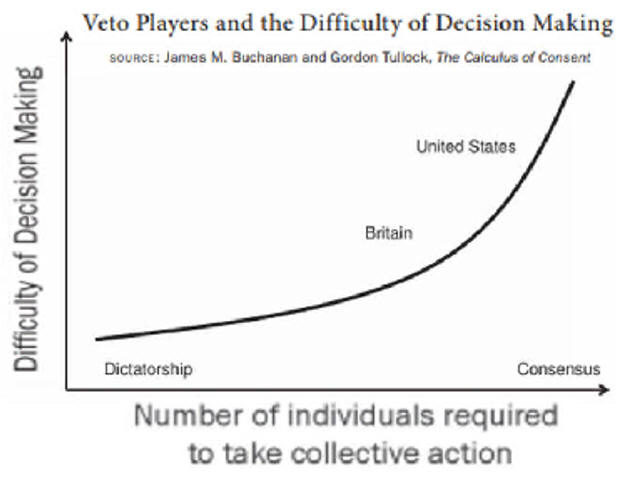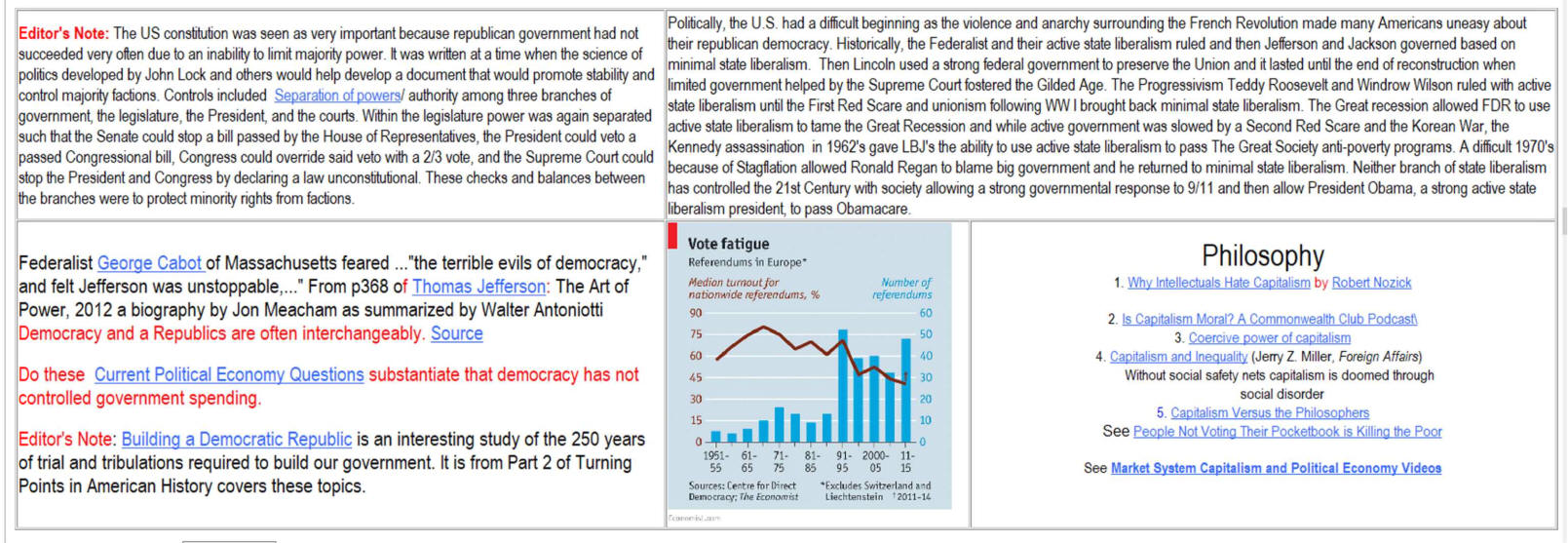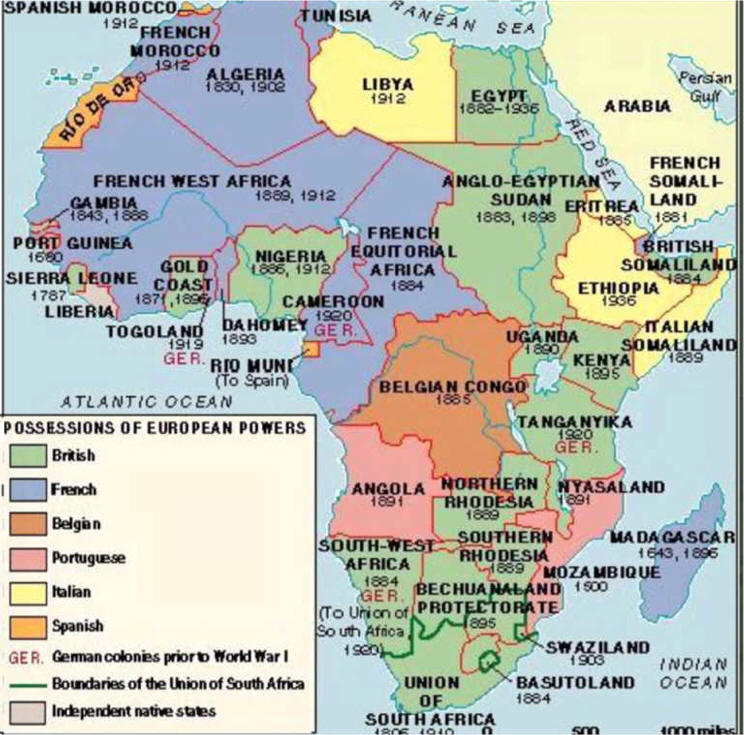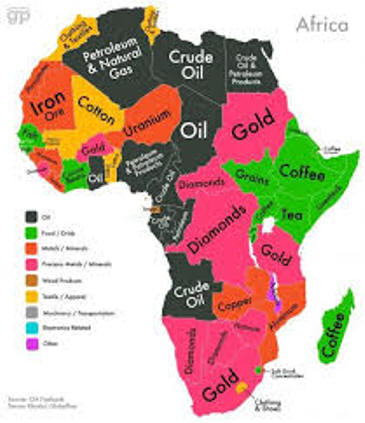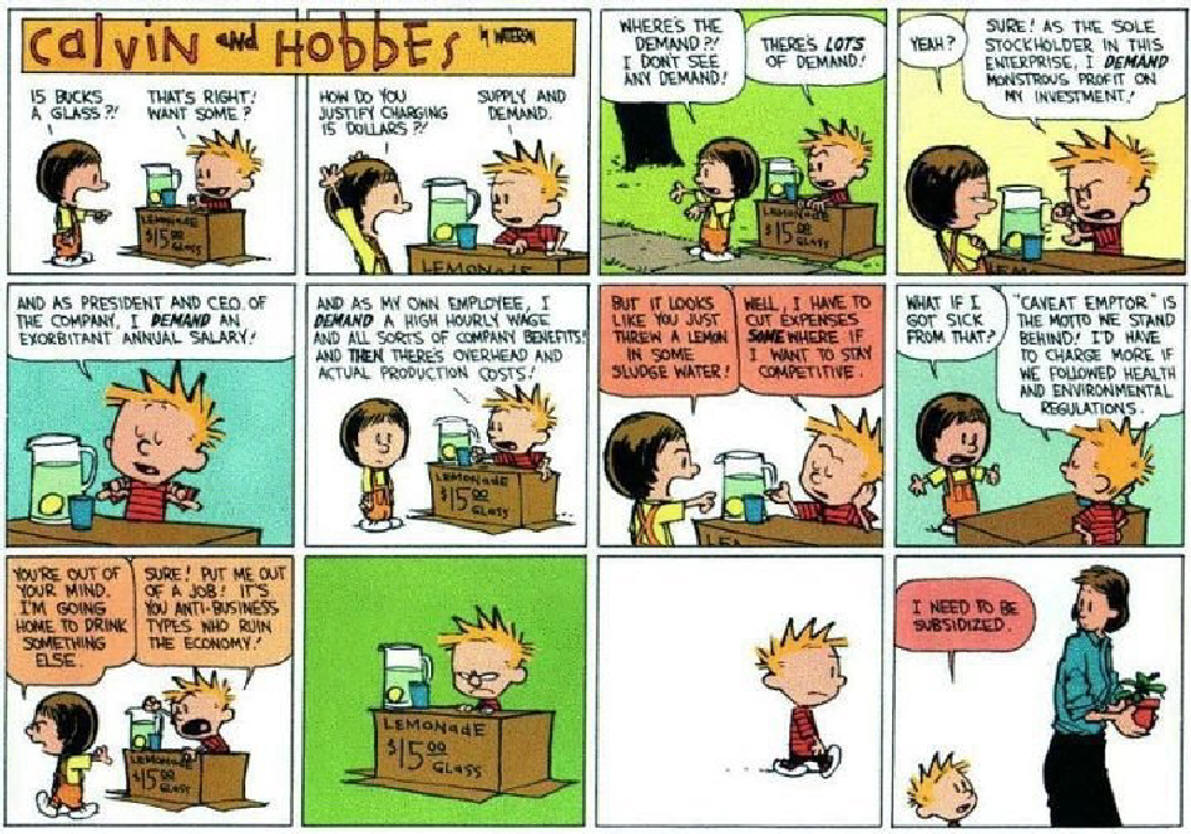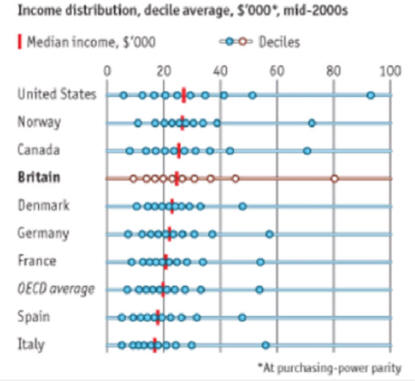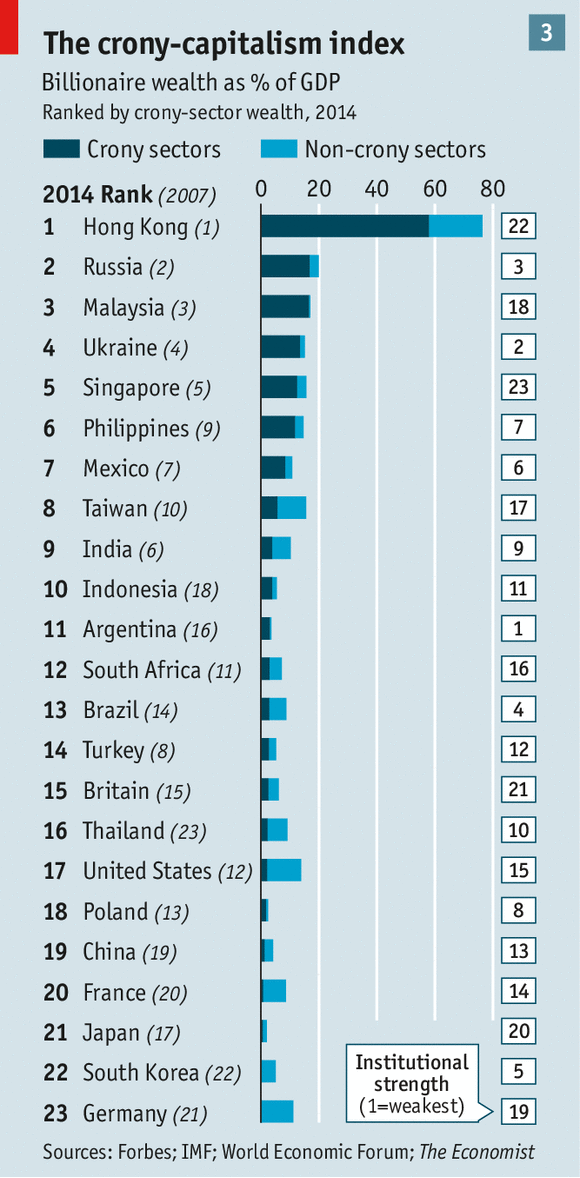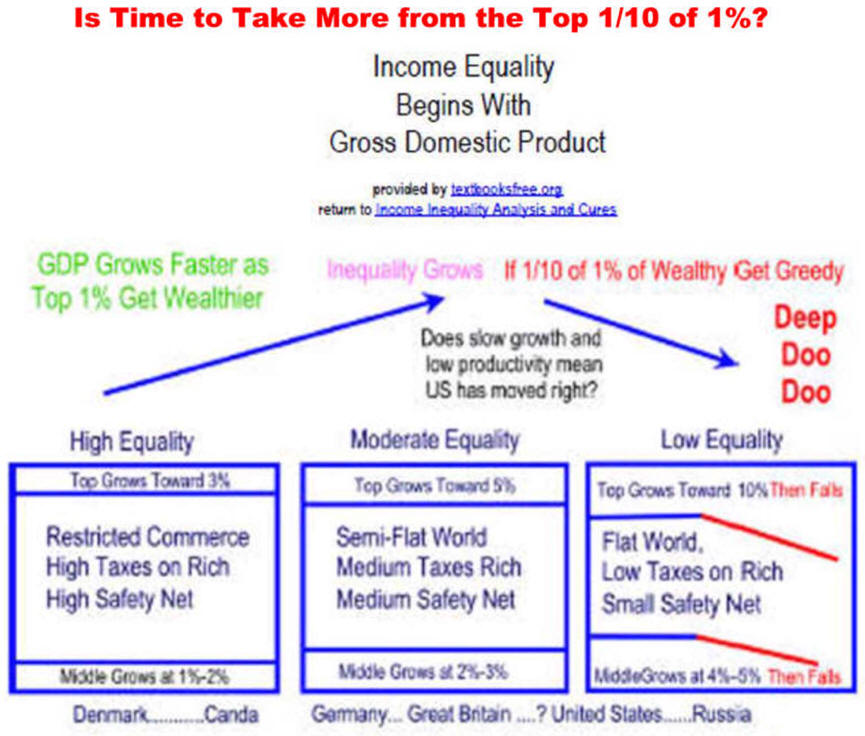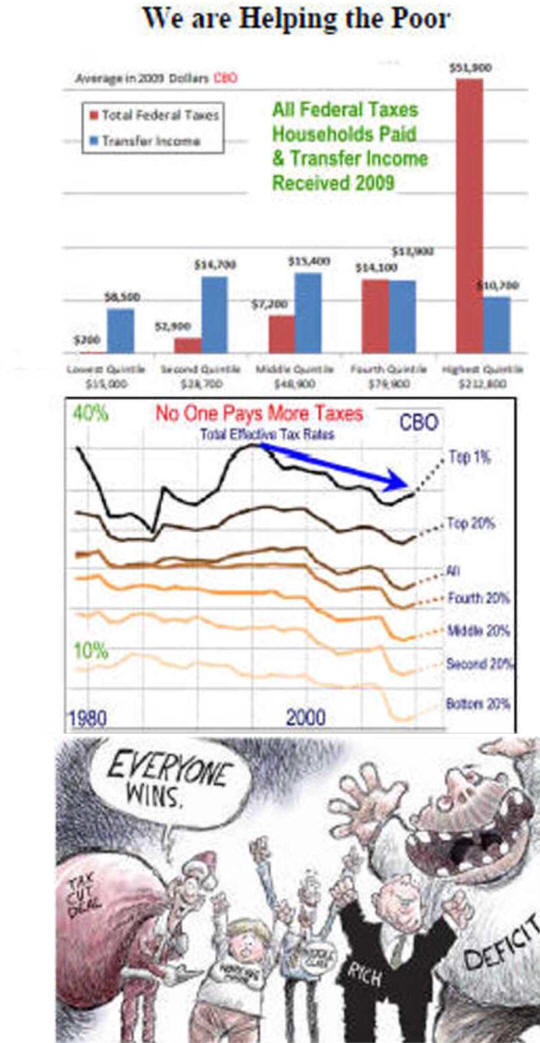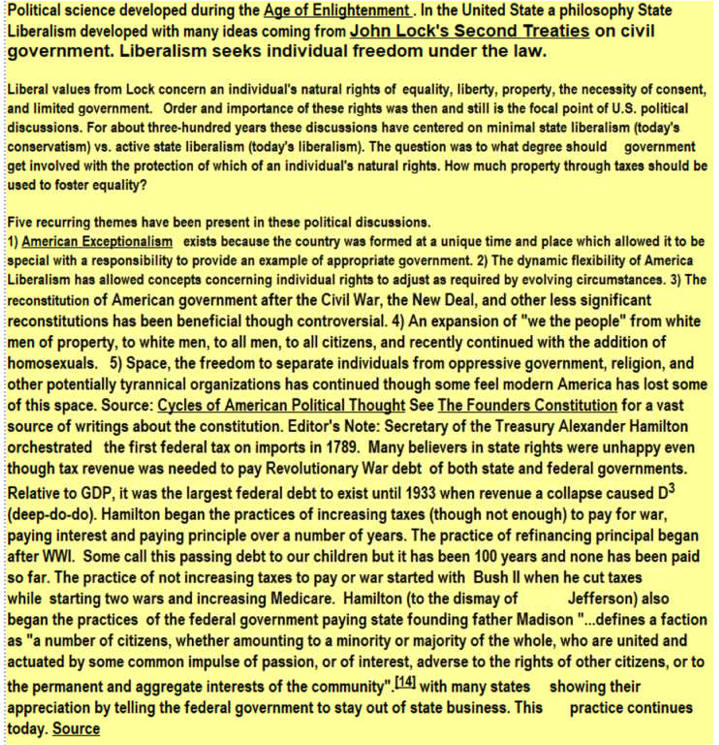|
Chapter 3 | |
| I. Characteristics of Capitalism |
|
|
Lecture Notes

 |
Political Economy A. Business Downturns Continue 1. Post WW2 Competitive Adjustment 2. 7 US Competitive Adjustments
Videos 6. Crisis of Capitalism Critique |
|
5.
a. Market participants, buyers and sellers, have little control over price b. Competition performs the organizing and controlling functions for a market economy c. Balance Countervailing Forces required to guide capitalism to maximum benefits Limited government ("Laissez-faire 1) Government should let markets be with a hands-off philosophy 2) Acceptable government involvement has become an important political question in the United States from the revolution. 4) Francois Quesnay popularized term laissez faire. 5) Free Anne Rand Books 6) Some disagree with Anne Rand's ideas on limited government E. Adam Smith on the Morality and Markets F. Advantages and Disadvantages of Capitalism. 1. Advantages a. Economic freedom helps political freedom b. Government ownership often leads to a powerful state and less political freedom. 1984 audio book Spark Notes video c. Maximum economic success requires efficiency d. Economic growth required for efficiency e. Most successful economic system to data 2. Disadvantages a. Monopoly power over product and labor markets limits advantages. b. Social costs (pollution) and benefits (health care) often ignores. c. Inherited Wealth can lead to inequality and social unrest d. Diminishing utility from wealth accumulation means society's total is not maximized e. Prone to boom and bust cycles causing much hardship
|
|
